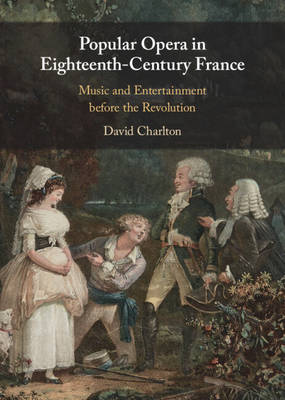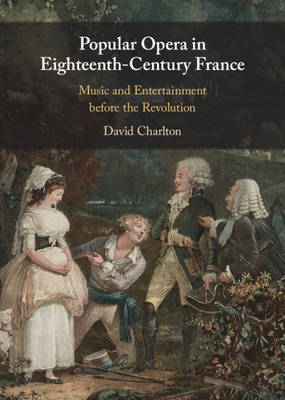
- Afhalen na 1 uur in een winkel met voorraad
- Gratis thuislevering in België vanaf € 30
- Ruim aanbod met 7 miljoen producten
- Afhalen na 1 uur in een winkel met voorraad
- Gratis thuislevering in België vanaf € 30
- Ruim aanbod met 7 miljoen producten
Zoeken
Popular Opera in Eighteenth-Century France
Music and Entertainment before the Revolution
David Charlton
Hardcover | Engels
€ 172,95
+ 345 punten
Uitvoering
Omschrijving
This is the first book for a century to explore the development of French opera with spoken dialogue from its beginnings. Musical comedy in this form came in different styles and formed a distinct genre of opera, whose history has been obscured by neglect. Its songs were performed in private homes, where operas themselves were also given. The subject-matter was far wider in scope than is normally thought, with news stories and political themes finding their way onto the popular stage. In this book, David Charlton describes the comedic and musical nature of eighteenth-century popular French opera, considering topics such as Gherardi's theatre, Fair Theatre and the 'musico-dramatic art' created in the mid-eighteenth century. Performance practices, singers, audience experiences and theatre staging are included, as well as a pioneering account of the formation of a core of 'canonical' popular works.
Specificaties
Betrokkenen
- Auteur(s):
- Uitgeverij:
Inhoud
- Aantal bladzijden:
- 350
- Taal:
- Engels
Eigenschappen
- Productcode (EAN):
- 9781316515846
- Verschijningsdatum:
- 16/12/2021
- Uitvoering:
- Hardcover
- Formaat:
- Genaaid
- Afmetingen:
- 170 mm x 244 mm
- Gewicht:
- 825 g

Alleen bij Standaard Boekhandel
+ 345 punten op je klantenkaart van Standaard Boekhandel
Beoordelingen
We publiceren alleen reviews die voldoen aan de voorwaarden voor reviews. Bekijk onze voorwaarden voor reviews.











